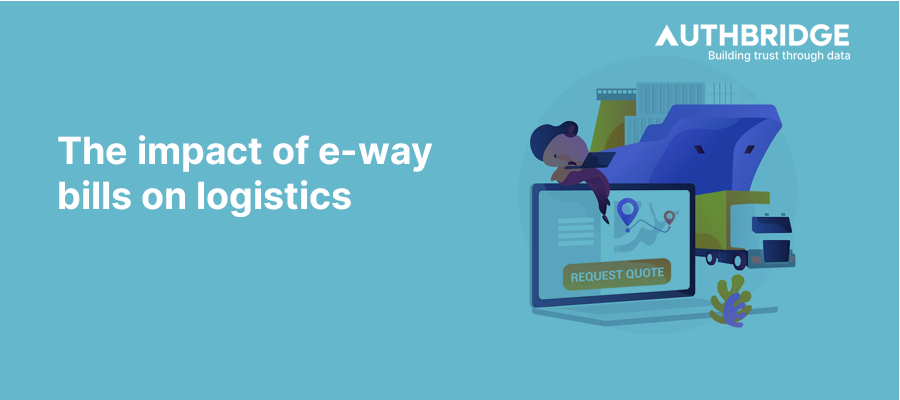The Impact Of E-Way Bills On Logistics: Transforming Transportation And Supply Chain Efficiency

Overview and Purpose of E-Way Bills
The Electronic Way (E-Way) Bill system, introduced under the Goods and Services Tax (GST) regime in India, is a critical component for the transport and logistics sector. It mandates the generation of an e-way bill for the movement of goods exceeding a value of INR 50,000, aiming to streamline the tracking, management, and verification of goods transportation, thereby reducing tax evasion.
Historical Context and Implementation
The e-way bill system was rolled out nationwide on April 1, 2018, marking a significant shift towards digitizing the logistics and transportation processes. Its implementation aimed to replace the physical paperwork, which was prone to manipulation and delays, with a transparent and efficient online system.
Positive Impacts on the Logistics Industry
Streamlining of Transportation Processes
The introduction of e-way bills has significantly streamlined the process of goods transportation across state lines and within states. By mandating real-time tracking of goods movement, it has minimized the waiting time at check posts and enabled faster movement of freight.
Reduction in Transit Times
One of the most notable impacts of the e-way bill system is the substantial reduction in transit times. The elimination of check posts and reduced paperwork have contributed to quicker delivery times, benefiting businesses with improved supply chain efficiency.
Enhanced Transparency and Accountability
The digital nature of e-way bills ensures greater transparency in the logistics sector. Every stakeholder in the supply chain, from the consignor to the transporter and consignee, is accountable for the information provided, leading to a reduction in tax evasion and improved compliance.
Challenges and Solutions
Initial Implementation Hurdles
The initial phase of e-way bill implementation faced challenges, including system glitches and a lack of understanding among stakeholders. However, continuous efforts by the government to provide training and improve the IT infrastructure have largely overcome these hurdles.
Technological Challenges for SMEs
Small and Medium Enterprises (SMEs) initially struggled with adapting to the new digital system due to limited technological resources. Solutions such as simplified SMS-based bill generation and the introduction of third-party applications have made the system more accessible to SMEs.
Adaptive Measures and Technological Solutions
The logistics industry has seen significant technological adoption, with companies investing in GPS tracking, RFID, and logistics management software to comply with e-way bill requirements efficiently.
Future Outlook and Continued Evolution
Potential for Further Improvements in Logistics
The e-way bill system continues to evolve, with potential integrations into other digital initiatives like the FASTag system for toll payments, further streamlining the logistics sector.
Integration with Other Digital Initiatives
The future of logistics in India looks towards a more integrated approach, combining e-way bills with other digital systems for a seamless and efficient logistics ecosystem.
Conclusion
The introduction of e-way bills has marked a significant milestone in the digitization of India's logistics sector, bringing about efficiency gains, reduced costs, and enhanced transparency. While challenges remain, particularly for SMEs, the overall impact has been overwhelmingly positive. As the system continues to evolve, further benefits are expected, solidifying the e-way bill's role as a catalyst for modernizing India's logistics industry.
This comprehensive analysis underscores the transformative impact of e-way bills on logistics, offering insights into both the challenges overcome and the opportunities ahead. As the logistics sector continues to adapt and evolve, the e-way bill system stands as a testament to the power of digital solutions in driving economic efficiency and transparency.
Category

Abhinandan Banerjee
(Associate Manager - Marketing)
Abhinandan is a dynamic Product and Content Marketer, boasting over seven years of experience in crafting impactful marketing strategies across diverse environments. Known for his strategic insights, he propels digital growth and boosts brand visibility by transforming complex ideas into compelling content that inspires action.



